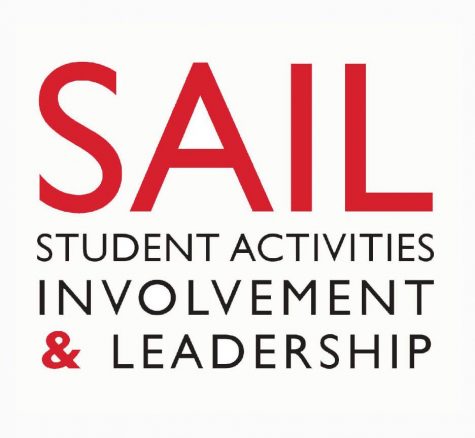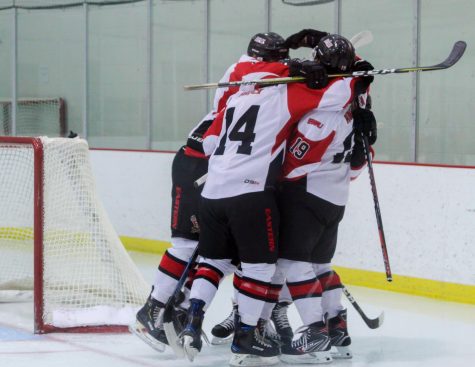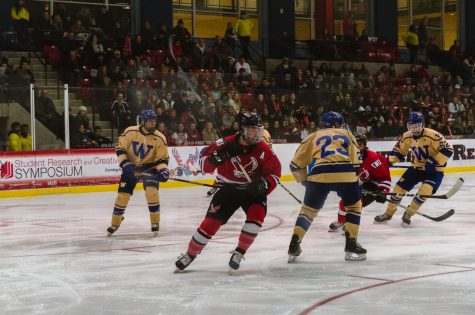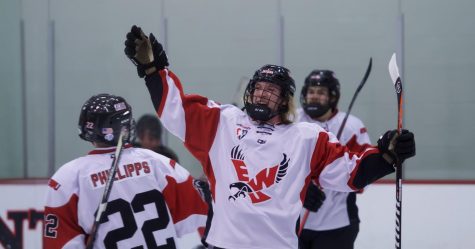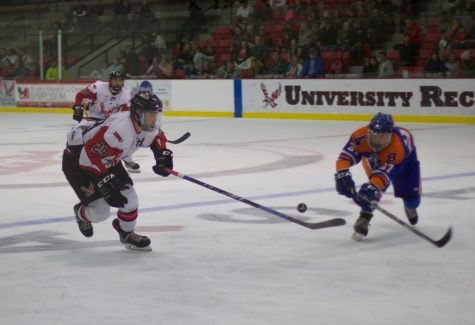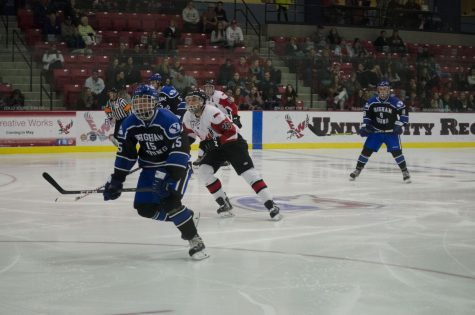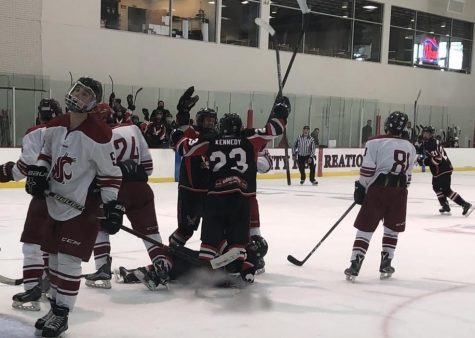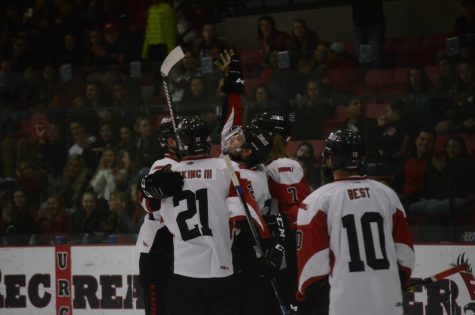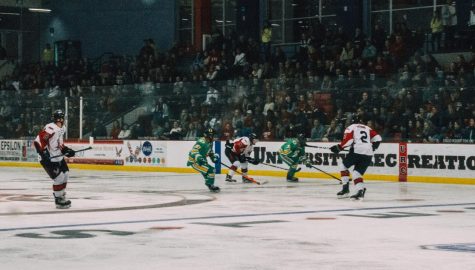Competitive gaming at EWU
Luke Sturgis (foreground) and Alexis Mendoza (background) in their first battle.
April 6, 2020
The EWU Gaming Club performed its final matchup of the season on March 8. This is the first official, functional year of the club at EWU, and club president Connor Stark heads the responsibility in full.
“I see it as the next version of sports,” said Stark. “Sports have evolved over time … and now we’re getting into technology, (which) gives people an opportunity to get involved with their school, (and) make something out of their hobbies.”
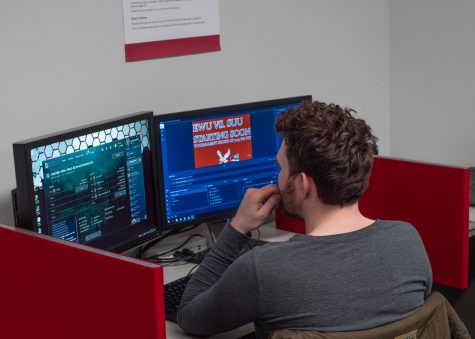
Club president Connor Stark sets up the tournament match with Southern Utah University’s gaming team.
Stark’s vision for the club as a whole is simple.
“I want to create an environment of learning and winning,” Stark said. “We may be able to apply some professional stuff; we want more people to engage in this. Not just us, but more people. More outreach.”
Stark teamed up with Tung Truong, the vice president of the Competitive Gaming Club, to bring on some extra support in the growing endeavor. Tung prefers to be addressed as either Mr. T, or T.
When inquired about his drive to leadership, T said, “One day, I saw my friends playing games. They were actually in a team that played in tournaments, so I came and I saw them play. I was like, ‘hey, it’s good to jump (into) the leadership (role), y’know?’”
The inspiration that T gained pushed him towards Stark, as both had the drive to make the club a reality.
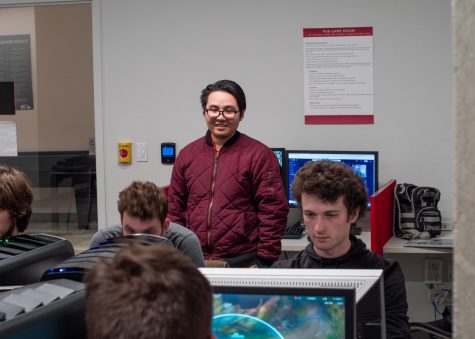
T, vice president of the gaming club, watches his teammates engage.
Stark and T are both hoping for some more engagement in the coming seasons, but for now, the two work together to establish a strong foundation.
The club’s inception stems from Stark and his high school, and their lack of any sort of gaming club. On Stark’s admitted students day tours, he crossed paths with Mike Campitelli, EWU’s Director of Campus Recreation Programs. Campitelli and Stark communicated back and forth, establishing the club with Stark’s vision, based on what Stark missed out on in earlier years. Both Stark and T express great desire to be viewed as one of EWU’s intramural sports teams.
“We’ve had a lot of support from the guys in charge of the club sport federation,” Stark said. “They’re looking into getting us some jerseys, to really get us in the team spirit.”
Stark and T faced many obstacles while attempting to lead the fledgling club. One of the biggest obstacles facing the club was some miscommunication among the teammates. At the time the match was supposed to begin, the team was down a player. After a few phone calls and worried looks, it was clear that action had to be taken, and it had to be taken seriously.
It is acceptable for e-sports players to work as a satellite, where they play on their own hardware at home. This was not possible for the absent player. Stark acted fast, delineating responsibilities amongst his peers.
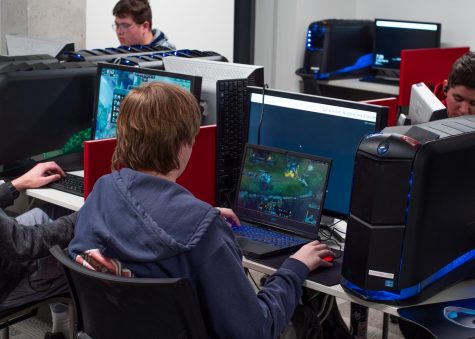
Nick Verdoes prefers to play on his own hardware.
The club competes in League of Legends. In League of Legends, certain playable in-game characters have distinct responsibilities. For example, the role of “Lane” is a player who remains in one of the two ‘lanes’ of the battlefield, a main byway for Player Characters (PCs) and Non-Player Characters (NPCs). The responsibility of the Lane is to handle the NPCs to gain points for their team, while defending their home base from enemy PCs. This is one of many roles in League of Legends, with others including Damage, Healing, and Tank. With these roles in mind, each player brings a specific skill set.
Losing that player means losing their skillset on the team.
Stark, simultaneously coordinating with the opposing team AND setting up the stream to make the match viewable, realized he needed to adapt to his predicament. He decided to pick up a new role on the fly. Stark conversed with his team, discussing strategies and optimization of his new role under the pressure of the match.
Other obstacles the team encountered were computer hardware issues, such as problems starting up and Internet connection issues. Game updates and installations impeded the beginning of the match.
The club fought valiantly, but lost their final regular season matchup.
When inquired about the future of the club, both Stark and T shared their visions.
“(We want) more people to be aware that we exist,” Stark said.
“I’d love to be professional,” said T. “It would draw a lot of people’s attention and they would be serious about what we did.”



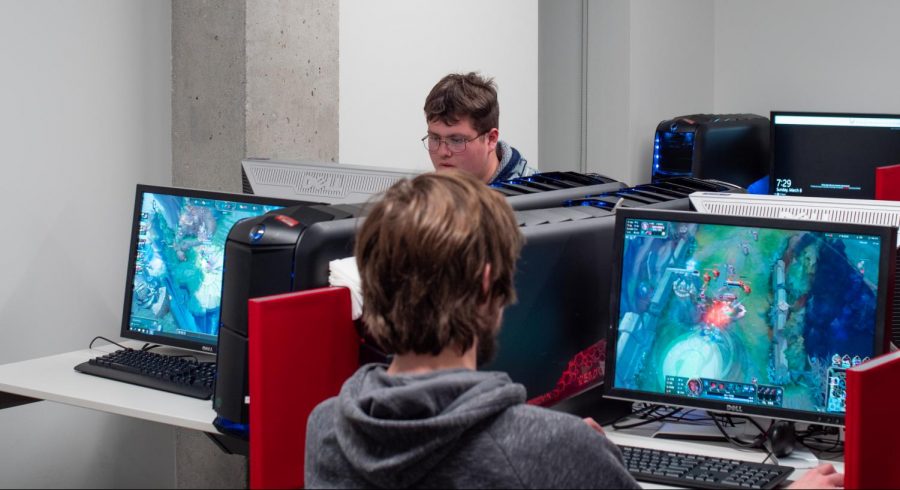


![Simmons said the biggest reasons for her success this year were “God, hard work, and trusting [her] coach and what she has planned.”](https://theeasterner.org/wp-content/uploads/2024/05/image1-1-1200x800.jpg)

